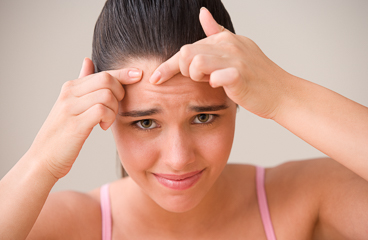Acne Medicine: Care Instructions

Overview
Medicines can help acne. They can clean skin pores, kill bacteria, and reduce skin oil. And they can reduce the effects of hormones. The type of medicine you take depends on the type of acne you have.
The best treatment often is a mix of medicines. For example, you might take pills and put medicine on your skin.
Common acne medicines include:
- Benzoyl peroxide. This includes Benzac or Benzagel.
- Salicylic acid. This includes Clearasil or Noxzema cleansing pads.
- Retinoid medicines you put on your skin. These include adapalene (Differin) and tretinoin (Retin-A).
- Antibiotic pills or ointments. These include erythromycin and tetracycline.
- Some birth control pills and spironolactone. These may help control acne related to the effects of hormones.
Antibiotic pills for acne can cause side effects. They include yeast infections (in women) and diarrhea. Let your doctor know if you have side effects.
Tell your doctor if you are breastfeeding or if you're pregnant or think you might get pregnant. Some of these medicines are not safe to take when you are pregnant or breastfeeding. Women who take some medicines need to use birth control.
Follow-up care is a key part of your treatment and safety. Be sure to make and go to all appointments, and call your doctor or nurse advice line (811 in most provinces and territories) if you are having problems. It's also a good idea to know your test results and keep a list of the medicines you take.
How can you care for yourself at home?
- Take your medicines exactly as prescribed. Call your doctor or nurse advice line if you think you are having a problem with your medicine. You will get more details on the specific medicines your doctor prescribes.
When should you call for help?
Call your doctor or nurse advice line now or seek immediate medical care if:
- You have signs of an infection, such as:
- Increased pain, swelling, warmth, or redness.
- Red streaks leading from the affected area.
- Pus draining from the area.
- A fever.
Watch closely for changes in your health, and be sure to contact your doctor or nurse advice line if:
- You think you may be having a problem with the medicine.
- You do not get better as expected.
Where can you learn more?
Go to https://www.healthwise.net/patientEd
Enter C526 in the search box to learn more about "Acne Medicine: Care Instructions".
Current as of: December 4, 2024
